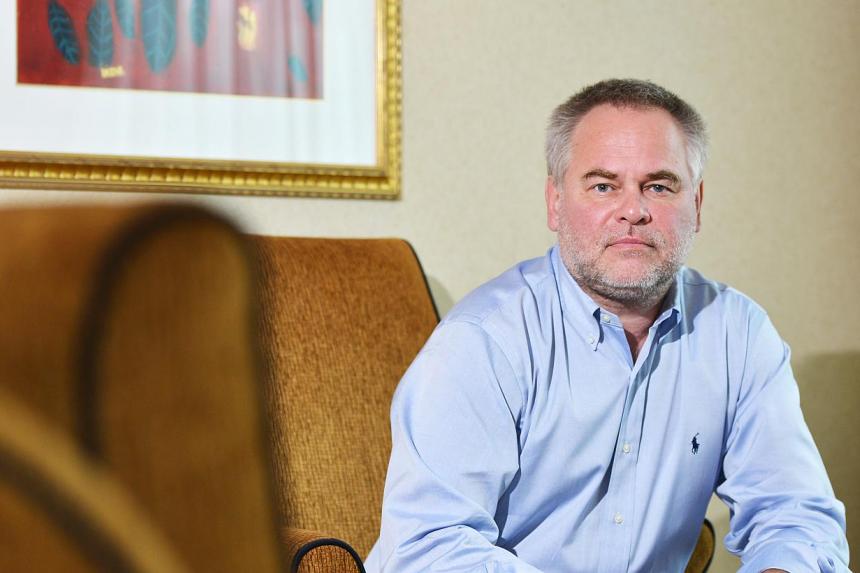Watch your smartphone closely - because it could be watching you, according to one of the world's most influential cyber security experts.
"Smartphones and tablets are just small computers, and they are vulnerable to the same things," said Mr Eugene Kaspersky, whose name has become synonymous with the war against cybercrime.
The multi-millionaire is the founder and chief executive officer of Kaspersky Lab, the anti-virus software and global IT security giant. Its anti-virus software has over 300 million users.
In an exclusive interview with The Sunday Times, the 49-year-old Russian said most people are oblivious to the threat that their smartphones pose.
And the risks are growing with more people now using these gadgets to do banking, store private information and take pictures. Plug it into a computer infected with malware, and the virus can easily take over the phone.
Once compromised, the phone "can send messages or record your voice without you knowing. It can do anything if the malware is complicated enough", he said.
"The next thing to watch out for - attacks on smart TVs. They are connected to the Internet, to computer systems. And these TV sets also have cameras. So you are watching TV, and the TV is watching you," said Mr Kaspersky.
Even more worrying now is that "off-line" criminal syndicates are going high-tech, and creating an underground market for hacking services - a trend which was highlighted in a recent Europol report.
"Traditional crime now employs software engineers to develop computer tools and attacks to support them," said Mr Kaspersky, who, as a teenager, was sponsored by former Soviet spy agency KGB to study cryptography.
Such tools include software that hacks into phones for banking information, or privacy applications that hide illicit online activity.
He spoke of how in Russia, criminals were able to steal coal from mines by hacking into the weighing system and manipulating it.
The damage could be far-reaching when criminals target critical infrastructure, such as power grids, transport systems, financial set-ups and telecommunications. With countries increasingly relying on computers, they become more vulnerable as well, he said.
He revealed that he was "very interested" when Singapore announced last week that it was developing a satellite-based Electronic Road Pricing system.
"It's a great idea, but what about security? What's the risk management?" When asked about potential vulnerabilities, he threw up his hands and said: "Not answering that - I don't want to educate the bad guys."
The former Soviet army intelligence officer was in Singapore for the Interpol-Europol Cybercrime Conference, which ran from Wednesday to Friday at Police Cantonment Complex.
The conference marks the opening of Interpol's new Global Complex for Innovation at Napier Road, which will house the international police force's first Digital Crime Centre.
Last Wednesday, President Tony Tan Keng Yam also presented the Distinguished Service Order on Interpol Secretary-General Ronald Noble, an American.
During the conference, Mr Kaspersky signed a collaboration agreement with Interpol to provide his company's products and intelligence in the fight against cyberthreats.
He urged people to educate themselves about cyber security.
"Be paranoid," said Mr Kaspersky, tapping the side of his head. "On the Internet, privacy doesn't exist. Everything you make digital, there's a high risk that someone can hack and steal it."
His son, Ivan, was kidnapped in 2011 when he was 19, after criminals convinced him into posting his address and phone number on Russian social network site VK.
This was soon after Mr Kaspersky was named one of Russia's richest businessmen, with a fortune of US$800 million (S$1 billion).
The kidnappers reportedly wanted three million euros (S$4.8 million). But a police operation freed Mr Kapersky's son after tracking the cellphone used to make the ransom demand.
When asked how he protects himself, Mr Kaspersky grinned as he whipped out a beaten-up, old-school Sony Ericsson model. He said: "Non-smartphone. Most secure."


